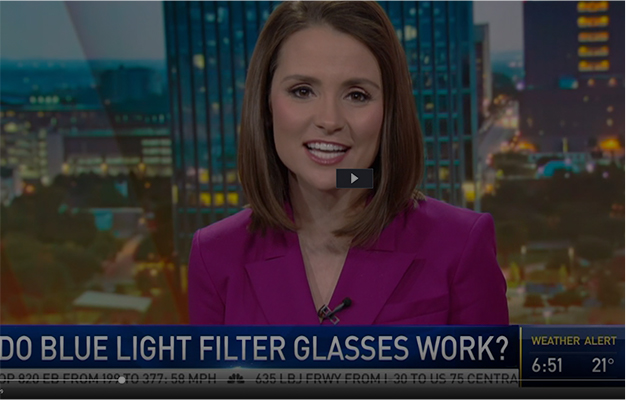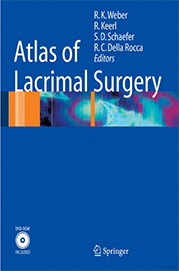Our ophthalmologist, Dr. Syed Ahmad and his team are dedicated to answering our patients’ questions about our services and procedures. Below are some of our most commonly asked questions along with their answers. If you have a question for us that is not included below, please give Texas Eye & Aesthetic Center a call today at 972-519-9933 for more information or visit our facility in Plano, Texas.
What Is Cosmetic Eyelid Surgery?
Cosmetic eyelid surgery (blepharoplasty) involves sculpting the upper and lower eyelids to restore a youthful appearance to the eyes and sometimes to improve vision. Upper eyelid surgery can open up droopy upper eyelids. Lower eyelid surgery removes puffiness and swelling. Most patients look younger and more rested after successful eyelid surgery.
What Is the Difference Between Cosmetic and Reconstructive Surgery?
Cosmetic surgery enhances specific features to improve one’s appearance and to boost self-esteem. Reconstructive surgery improves function and restores appearance to those abnormal features affected by birth defects, tumors, trauma, infection, disease or developmental abnormalities.
Who Is a Good Candidate for Cosmetic Surgery?
A good candidate for cosmetic surgery seeks to improve a particular aspect of his or her appearance, has realistic expectations about what the surgery can and cannot accomplish, is in good physical condition, and is willing to follow the surgeon’s recommendations regarding pre- and post-operative care.
How Do I Choose a Surgeon?
The surgeon one chooses is as important as knowing the type(s) of surgery being considered, whether cosmetic or functional. Be well informed. Do not be afraid to ask questions regarding a doctor’s certification, operating privileges and training. Ophthalmic plastic surgeons are ophthalmologists with additional training in oculoplastic surgery. It takes years of specialized training and extensive knowledge of the delicate tissues around the eyes to perform procedures safely and effectively.
Is There Any Pain After Surgery?
Patients have surprisingly little discomfort after most eyelid procedures. Generally, over-the-counter Tylenol in conjunction with ice pack placement over the eyes for 24 hours is all that is needed. An occasional patient will require stronger medication.
Can Other Procedures Be Performed at the Same Time?
Yes, other facial surgical and laser procedures can be combined with eyelid surgery.
How Much Does Surgery Cost?
Fees reflect your specific issue and the extent of surgery needed to correct it. A price estimate will be given at your consultation for cosmetic surgery that includes the surgeon’s fee, the fee for the operating room and the fee for an anesthetist if required.
Are There Any Risks?
Cosmetic surgery is real surgery and therefore involves some degree of risk. Fortunately, complications are seldom and are usually correctable. You can minimize your risks and potential complications by strictly adhering to your doctor’s instructions for preparing for surgery and for caring for yourself post-operatively.
How Long Before I Can Go Back to Work?
Although recovery time varies widely depending on the surgery and your own body’s ability to heal, most cosmetic surgery patients can return to light activity within three to ten days.
What Can I Do to Prepare for Surgery?
If you smoke or use any form of nicotine, stop now. Eat well-balanced meals and drink at least 32 ounces of water a day. Get plenty of sleep and exercise and consider taking a multi-vitamin supplement. Three weeks before surgery, stop all vitamin E, aspirin, ibuprofen, and other over-the-counter blood thinners. You may continue taking Tylenol. (If you are taking Coumadin or other prescription medications, do not stop your medication without consulting with your physician). Many herbal supplements such as Gingko, Ginseng, and Garlic also promote bleeding and may interfere with anesthesia. Please inquire for more detailed information.
Where Is the Surgery Performed?
Many procedures can be performed in our minor procedures room. Local anesthetic is used to minimize discomfort. More extensive procedures are performed in outpatient surgical operating rooms.
Is an Overnight Stay Required for My Facial Cosmetic Surgery?
All surgeries are on an outpatient basis and do not require an overnight stay.
At What Age Do Most People Have Cosmetic Surgery?
The average age of patients receiving cosmetic surgery is 41. Treatments such as facial fillers are common among all age groups.
Will I Still Look Like Myself After Facial Cosmetic Surgery?
Many of our patients report that upon return to work and routine daily activities, friends and acquaintances make the following remarks: “Wow you look great. Did you change your hairstyle?” or “Have you been on vacation?” Retaining your uniqueness is the sign of a successful procedure. Although the change may be significant to you, it’s not uncommon that friends and family don’t really notice the specific changes, but just a refreshed younger appearance.
Will My Insurance Cover My Surgery?
Cosmetic surgery is not covered by insurance. Some functional or medically necessary surgeries may be covered, such as blepharoplasty and ptosis surgery. For patients who have an excessive amount of upper eyelid skin or a weak eyelid muscle interfering with peripheral vision may choose to undergo in-office testing which will be submitted to the insurance company for pre-approval. The surgery will have to be deemed medically necessary and pre-approved by your insurance company. Only a complete medical evaluation can determine if you may qualify under this category.
Are Cosmetic Consultations Complimentary to First-Time Patients?
Yes, if you are considering a cosmetic procedure or surgery your consultation will be complimentary.
What Should I Expect From the Consultation?
Consultations vary from patient to patient. During the initial visit, the surgeon will discuss functional or cosmetic goals, assess physical health, provide education and information, and provide an opportunity to explore options and discuss various procedures. It is important to establish goals and expectations with the surgeon during the initial consultation visit.




